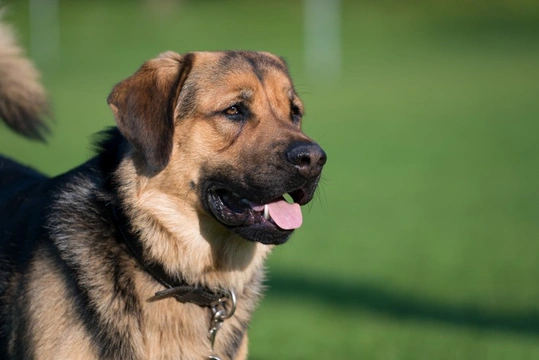
Tonsillar Carcinoma in Dogs
Tonsillar carcinoma is a particularly aggressive form of metastatic tumour that develops on the epithelial cells found on a dog's tonsils. The condition is also referred to as squamous cell carcinoma and it negatively impacts what is known as the epithelium which covers all internal and external surfaces of a dog's body. Its job is to protect organs as well as the outer surfaces of the body. When things go wrong and these important cells become cancerous, the damage is not only done to a dog's tonsils but it can also spread very quickly to other parts of the body. Tonsillar carcinoma is one of the most aggressive forms of cancers seen in dogs.
Dogs Most at Risk
The condition tends to develop in older, middle-aged dogs and studies have shown that dogs living in urban areas are more likely to develop tonsillar carcinoma that those living in a country environment.
Symptoms Associated with the Condition
When dogs start to develop tonsillar carcinoma, the signs of there being something wrong with them tend to be quite obvious. The most common symptoms associated with the condition typically include the following:
- Trouble eating and swallowing food which is referred to as dysphagia
- Difficulty breathing
- Halitosis - bad breath
- Excessive drooling/salivation
- Bloody discharge from mouth
- Loss of weight
The Cause
Unfortunately, why some dogs develop tonsillar carcinoma remains unknown and more research is needed to establish why this is so. However, studies have shown that dogs living in towns are ten times more at risk of developing this form of cancer than dogs living in a country environment.
Diagnosing the Condition
A vet would ideally need to have a dog's full medical history and be told how the onset of any symptoms first presented themselves which helps when establishing a preliminary diagnosis. The vet would thoroughly examine a dog suspected of suffering from tonsillar carcinoma playing particular attention to their lymph nodes which are situated at the back of the neck. Should a dog's lymph nodes be abnormally large, it is a sure sign that their immune systems are having to work overtime in order to fight off some kind of problem whether it is bacterial, viral or cancerous.
The sort of tests a vet would typically recommend carrying out to confirm a diagnosis would include the following:
- A complete blood count
- A full biochemistry profile
- A urinalysis
- A biopsy of lymph nodes
- X-rays to establish evidence of damage to a dog's lungs and/or to bones
Treatment Options
A vet might suggest surgery to remove any affected tissue around a dog's tonsils, however, the problem is that all too often their condition has progressed to such an extent that surgery is not an option, bearing in mind that tonsillar carcinoma is extremely invasive and aggressive by nature. The vet might remove damaged lymph nodes with the end goal being to prevent cancerous cells from spreading any further. With this said, removing a dog's lymph nodes does not offer a cure to the condition, but it might slow down the progression of the disease.
If a vet is able to remove affected areas of a dog's tonsils successfully, they would follow the procedure up with radiotherapy and/or chemotherapy with the end goal being to slow the cancer from spreading to other parts of a dog's body. However, a vet would normally refer a dog to an oncologist who would be in a better position to recommend whether chemotherapy could be an option, but it is worth noting that because the success of this type of treatment is not yet proved, sadly it is not often used to treat dogs diagnosed with this form of cancer.
Living with a Dog with Tonsillar Carcinoma
It is crucial that dogs be fed a good nutritious, balanced diet once they have been diagnosed and treated for tonsillar carcinoma. It is also essential that dogs recovering from any surgery or treatment drink enough water. Most dogs need to be tube fed in the first instance once they have undergone the necessary surgery to remove affected areas in their mouths. As such, they may need to remain hospitalised until they can manage to eat on their own again.
When dogs are allowed home, it is important for them to be kept in a quiet calm area of the house during their recovery period and the vet would have prescribed pain medication to help them get over the discomfort they would be experiencing following surgery.
Prognosis
Sadly, the prognosis for most dogs diagnosed as suffering from tonsillar carcinoma tends to be poor because of the aggressive and invasive nature of this type of cancer. Even when dogs are treated early they generally only live for few months. Should a dog's quality of life be negatively impacted when they are suffering from tonsillar carcinoma, it is often a lot kinder to put them to sleep rather than let them suffer unnecessarily.



